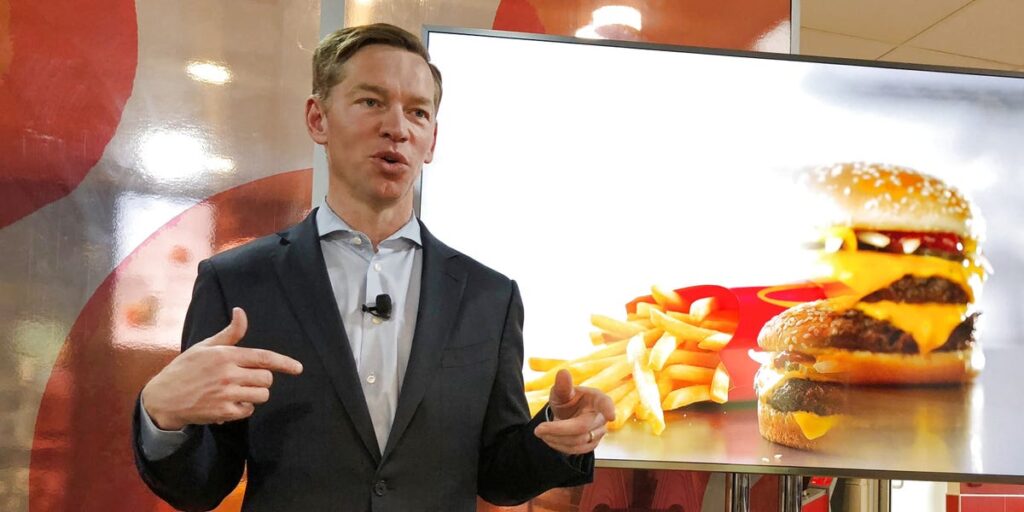The CEO of McDonald’s says restaurants that rely on tips are letting diners pick up the bill when it comes to paying their employees.
Speaking on CNBC Tuesday morning, McDonald’s CEO Chris Kempczinski was asked how the fast-food chain would be affected by the “no tax on tips” provision of the Big Beautiful Bill, which President Donald Trump signed into law in July.
Proponents of the change say that it will lower taxes for a variety of employees, including restaurant servers.
At McDonald’s, workers don’t take tips, Kempczinski said, meaning that the chain’s workers won’t see a change. “We don’t get the benefit of that tax relief,” he said.
The provision points to a reality that Kempczinski said puts McDonald’s at a disadvantage compared to restaurants where tips are common.
Restaurants that allow tipping often factor gratuities into workers’ compensation, Kempczinski said. Under federal law, restaurants can pay workers as little as $2.13 an hour as long as they make the federal minimum wage of $7.25 an hour once tips are included.
That has created “an uneven playing field,” with some restaurant operators paying less in employee wages, Kempczinski said.
“If you are a restaurant that allows tips or has tips as part of the equation, you’re essentially getting the customer to pay for your labor, and you’re getting an extra benefit from no taxes on tips,” Kempczinski said.
Tipped wages are not new. In fact, they’ve become pervasive in multiple lines of service work.
Besides restaurants, gig workers rely on tips to make ends meet. Outside a handful of states and cities, delivery and ride-hailing workers who work for apps like Uber and DoorDash don’t have to be paid a minimum wage.
Customers who order food for delivery often have the option to add a tip for their driver as they place the order. In some cases, that’s led to feuds between drivers and customers, including over “tip baiting,” or when customers leave a tip when they place an order — and make it appear more profitable for the worker — only to take it back after their order arrives.
DoorDash has warned some customers that not adding a tip early on might lead to slower delivery.
And a survey conducted earlier this year by Morning Consult found that customers seem to be getting tired of getting requests for tips at a wide array of establishments.
Kempczinski pointed to one solution in his CNBC interview: Making sure that all restaurants pay the same minimum wage, regardless of what workers make in tips. Some states already have laws requiring that, Kempczinski said. Those include Alaska, California, and Minnesota.
Those kinds of laws could help reduce poverty and employee turnover without costing jobs, Kempczinski said.
“Everybody should be paying the same minimum wage,” he said.
Do you have a story idea to share? Reach out to this reporter at abitter@businessinsider.com
Read the full article here


